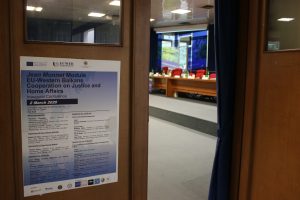
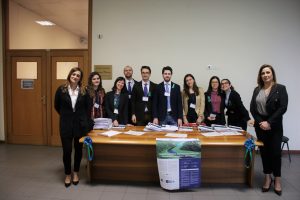
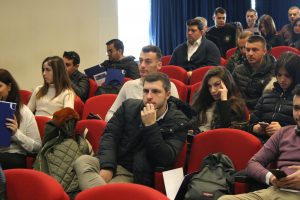
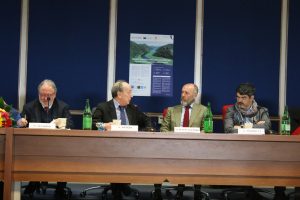
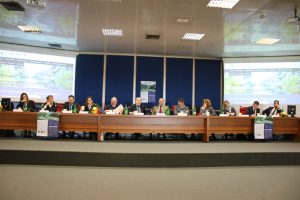
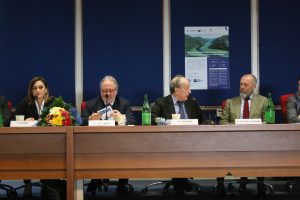
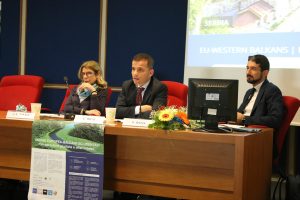
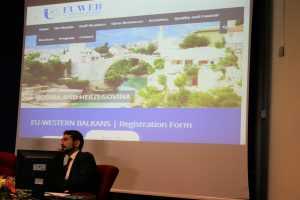
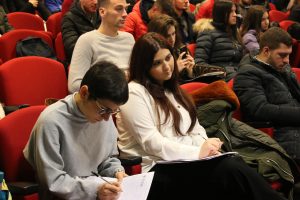
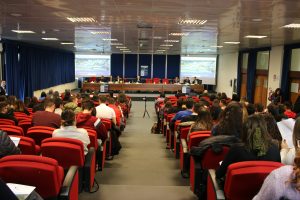
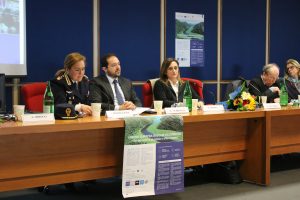
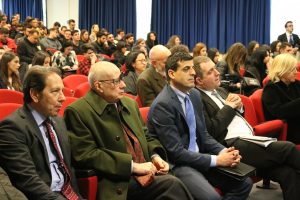
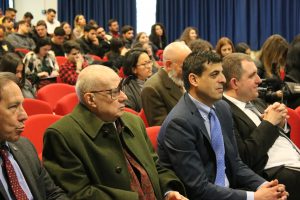
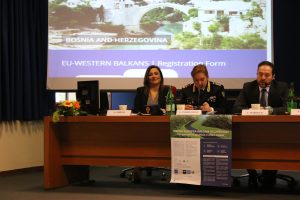
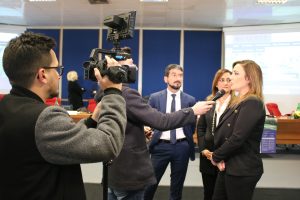
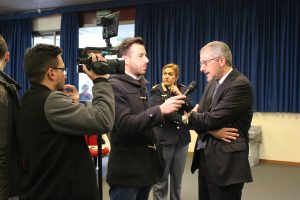

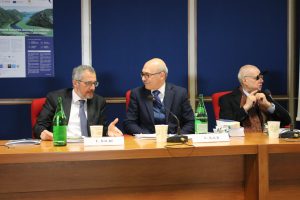
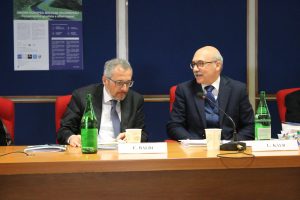
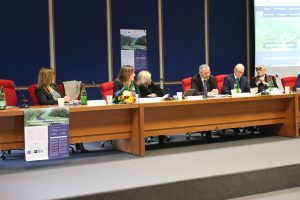
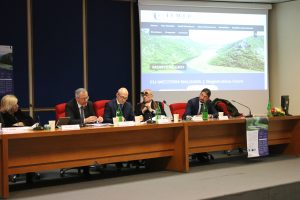

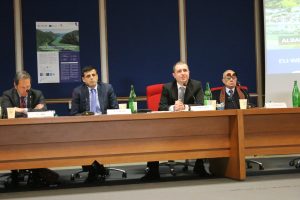
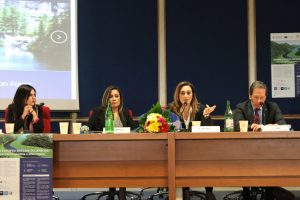
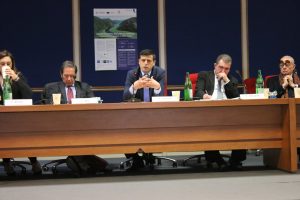

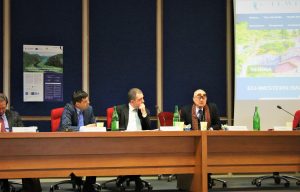
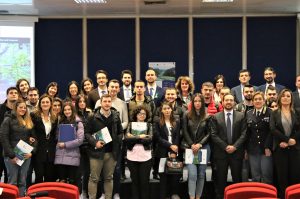
We are very satisfied with the Inaugural Conference of the Jean Monnet Module “EU-Western Balkans Cooperation on Justice and Home Affairs” (EUWEB), which took place on Monday 2 March 2020 at 9.30 am in the Nicola Cilento Hall of the University of Salerno.
The institutional speeches of Professor Gianluca Sbardella (Delegate of the Rector for internationalization), of Professor Giovanni Sciancalepore (Director of the Department of Legal Sciences) and of Vincenzo Accarino, lawyer of the Council of the Bar Association of Salerno, as well as the introduction of Angela Di Stasi (Professor of EU Law, UNISA, and Jean Monnet Chair Judicial Protection of Fundamental Rights in the AFSJ) emphasized the important of the Jean Monnet Activities.
The presentation of the Module by Professor Teresa Russo, Module Leader, highlighted the rationale behind the Module, as well as the multidisciplinary and practical approach that will guide the training courses. The instruments of international law combine with the tools of the European Union law are completed with the measures adopted in the legal systems of the Member States and, in particular, of the candidate States for accession to the EU. This explains the active involvement of all stakeholders who operate daily in the area of police and judicial cooperation and put in place the required reforms.
The works of the Conference were divided into the three sessions: Cross Border Security (Migration and Asylum Management), chaired by Augusto Sinagra (Full Professor of International Law at the University of Rome “La Sapienza”), Police and Judicial Cooperation, chaired by Monica Amirante (President of the Surveillance Court of Salerno) and Transnational Crimes and Protection of Fundamental Rights, chaired by Cosimo Risi (Italian Ambassador).
These three sessions allowed highlighting the critical issues that the training courses of the Module will be addressed.
In the first session, the issues related to borders management and the responsibility of national, international and EU institutions emerged, according to the reflections of Erjon Hitaj (Professor of International Law and Director of the Department of Legal Sciences of the University of Vlora “Isamil Qemali”, Albania). The different disciplines and political choices of States did not help to find common solutions, as highlighted by Livio Scirocco, Lieutenant Commander (ITCG), Senior Officer of the Italian Coast Guard. Giuliana Postiglione, Director of the Maritime and Air Border Police of Salerno, underlined the need to reform EU legislation in the management of migratory flows and asylum seekers. While Anna Lucia Valvo (Professor of European Union Law of the University “Kore” of Enna) stressed how a balanced connection between freedom, security and justice is difficult, as well, as how some EU Member States do not meet the membership criteria imposed on third States.
In the second session, Professor Gaspare Dalia, Key Staff member of the Module, focused on the problem of the execution of sentences and the transfer of prisoners between countries, while Luigi Kalb (Professor of Criminal Procedure, UNISA) pointed out the positive aspects of the European Public Prosecutor’s Office. Finally, Fulvio Baldi (Head of Cabinet of the Italian Ministry of Justice) emphasized the fundamental role of the Italian judiciary in training and cooperation with the countries of the Western Balkan area showing all the programs and projects putted in place.
In the third and final session, Anna Oriolo, Key Staff member of the Module, explained the important of the cooperation in the fight against transnational crimes. While, Niuton Mulleti (Professor of EU law and Director of the Legal and Institutional Affairs Office of the EPOKA University of Tirana, Albania) and Ismail Tafani (Professor of Constitutional Law and Director of the Department of Legal Sciences of the Albanian University of Tirana, Albania) putted in evidence the uncertainties of the European Strategy towards the Western Balkans which after twenty years has not given the expected results. They underscored the difficulties in national reforms for both the violation of constitutional rules and the principles of the rule of law. Finally, lawyer Simona Libera Scocozza highlighted how transnational crimes undermines the protection of fundamental rights.
The conclusions entrusted to Professor Massimo Panebianco (Emeritus of International Law, UNISA) have allowed clarifying how the international protection of borders and human rights cannot allow sovereignties or nationalisms. It must comply with a greater commitment towards common solutions by all the States.
The large participation of students, Professors and legal experts in the inaugural conference is proof that we have made a good start, haven’t we?
Thank you!

